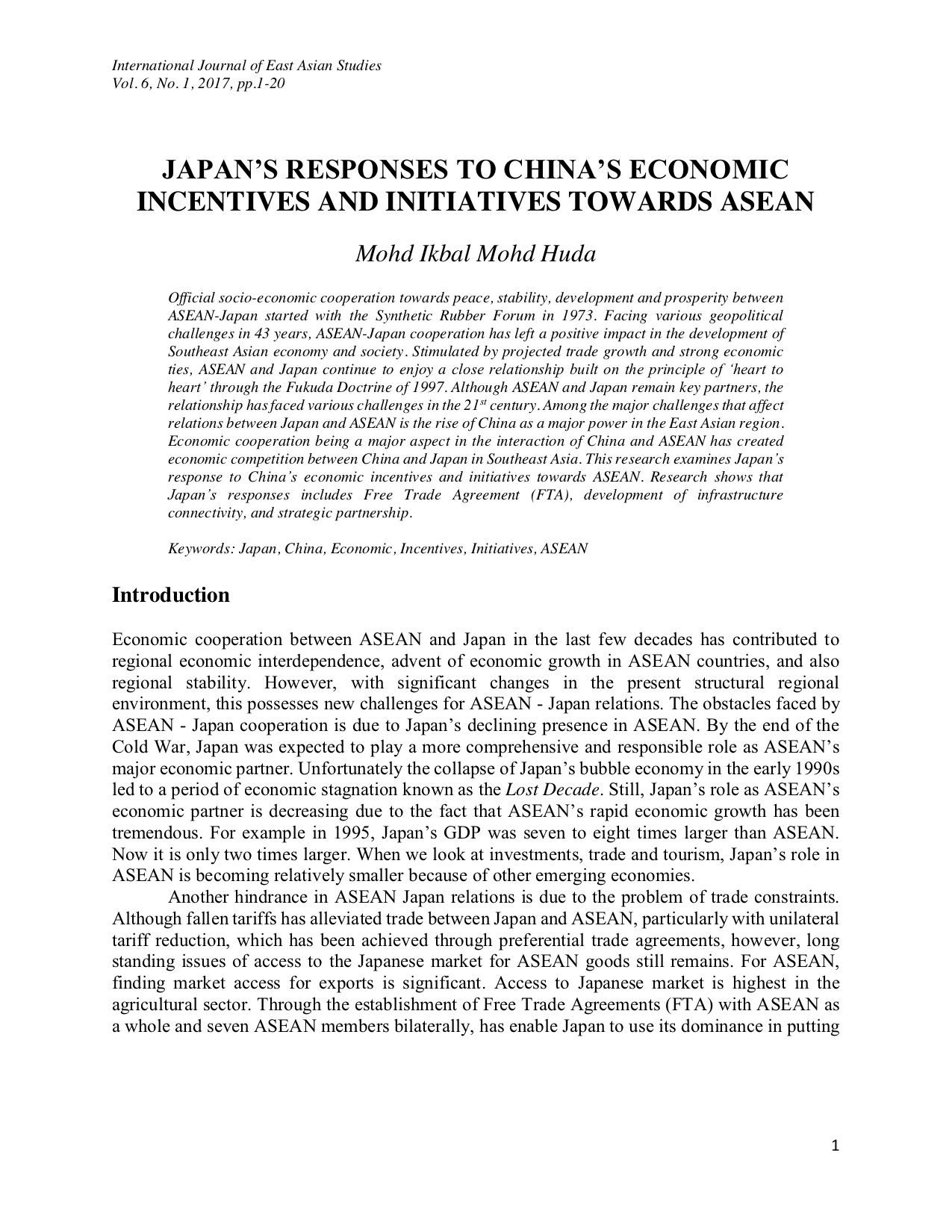Japan's Responses to China's Economic Incentives and Initiatives towards ASEAN
DOI:
https://doi.org/10.22452/IJEAS.vol6no1.1Keywords:
Japan, China, Economic, Incentives, Initiatives, ASEANAbstract
Official socio-economic cooperation towards peace, stability, development and prosperity between ASEAN-Japan started with the Synthetic Rubber Forum in 1973. Facing various geopolitical challenges in 43 years, ASEAN-Japan cooperation has left a positive impact on the development of the Southeast Asian economy and society. Stimulated by projected trade growth and strong economic ties, ASEAN and Japan continue to enjoy a close relationship built on the principle of 'heart to heart' through the Fukuda Doctrine of 1997. Although ASEAN and Japan remain, key partners, the relationship has faced various challenges in the 21st century. Among the major challenges that affect relations between Japan and ASEAN is the rise of China as a major power in the East Asian region. Economic cooperation is a major aspect in the interaction of China and ASEAN has created economic competition between China and Japan in Southeast Asia. This research examines Japan's responses to China's economic incentives and initiatives towards ASEAN. Research shows that Japan's responses include the Free Trade Agreement (FTA), development of infrastructure connectivity, and strategic partnership.
Downloads

Downloads
Published
How to Cite
Issue
Section
License
Copyright
Submission of a manuscript to the WILAYAH implies that the submitted work has not been published before (except as part of a thesis or report or abstract), that it is not under consideration for publication elsewhere; that all co-authors have approved its publication. The WILAYAH : International Journal of East Asian Studies adopts CC BY license. As such, we would be grateful if an acknowledgement accompanies the republication that the work was originally published in WILAYAH. The editors will ensure digital preservation of access to the journal content by the Journal depository section.
Disclaimer
Although the Department of East Asian Studies is the publisher of the WILAYAH : International Journal of East Asian Studies, the views presented in the WILAYAH are entirely those of the contributors and do not reflect the official stand of the Department of East Asian Studies. The Department does not hold itself responsible for the accuracy of any article published. Publisher and co-publishers assume no responsibility, nor by the editors for any injury and/or damage to persons or property as a result of any actual or alleged libellous statements, infringement of intellectual property or privacy rights, or products liability, whether resulting from negligence or otherwise, or from any use or operation of any ideas, instructions, procedures, products or methods contained in the material therein.





